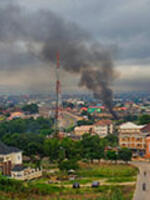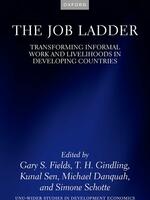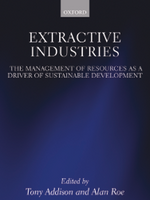Filter by...
Reset all
Publications (67)
Working Paper
pdf
Violent conflicts act as disincentives for sustainable socioeconomic development in conflict-prone societies, especially in the Global South. Existing studies focus largely on economic, political, and social triggers of violent conflicts; cultural factors, while important, are often not considered...
Working Paper
pdf
Education is associated with a range of positive micro and macro effects. It is hence no surprise that donors have recently increased the amount of official development aid specifically focused on restoring and maintaining education in less-developed states. While much attention has been paid to the...

Apart from a ‘badly flawed’ national election, insecurity, and mass exodus of its young talents to the Global North (locally known as Japa), a paralyzing debt burden is among the existential threats facing Nigeria, Africa’s largest and most populous economy. Between 1999—when democracy returned—and...
Working Paper
pdf
– COVID-19 and climate change
Terrorist and other types of armed groups often exploit natural and human-made disasters and emergencies to advance their causes. This paper studies how some armed groups have responded to two recent global emergencies—climate change and the COVID-19 pandemic. It examines the messaging and actions...
Working Paper
pdf
The federal character principle is Nigeria’s primary formula for mitigating horizontal inequality and conflict in this chronically fractured society. Designed to guarantee inter-group inclusion in the conduct and composition of governmental institutions, the principle spans direct, integrative, and...
Working Paper
pdf
There has been much discussion on climate change and its adverse effects on agriculture, including excessive loss of food production. In regions such as sub-Saharan Africa, where agriculture is the major source of household livelihoods, shocks in weather patterns affect farmers’ expectations of farm...
Working Paper
pdf
– Evidence from transaction-level data in Nigeria
Research on profit shifting by multinational corporations in developing countries is limited due to a lack of data. In this paper we use, for the first time, novel administrative data on the transactions of multinational corporations operating in Nigeria vis-à-vis related parties in other...
Working Paper
– Empirical evidence from Nigeria
The lingering policy dilemma facing many governments in sub-Saharan Africa in recent years is what can be done in the short to medium term to boost the output and incomes of individuals and enterprises in the informal sector, given the size and persistence of the sector in the region. In this paper...
Working Paper
pdf
– A livelihood analysis
This study evaluates the effects of the informal sector on Nigerian workers’ livelihoods and analyses workers’ transitions within the informal sector and between informal and formal employment. A binary logit model is applied to General Household Survey panel data for the periods 2010/11, 2012/13...
Journal Article
This study examines the implications of alternative monetary policy regimes to deal with resource revenue shocks when fiscal policy is laissez-faire—that is, when the government spends all resource revenue windfalls contemporaneously. A three-sector dynamic stochastic general equilibrium model is...
Journal Article
This peer-reviewed research is available free of charge. UNU-WIDER believes that research is a global public good and supports Open Access.
Part of Journal Special Issue
Horizontal Inequality: Persistence and Change
Journal Article
This peer-reviewed research is available free of charge. UNU-WIDER believes that research is a global public good and supports Open Access.
– Patterns of polarization in Nigeria
Part of Journal Special Issue
Inequality
Working Paper
pdf
This paper delves into the relationship between child nutritional outcome and (multiple) female work status in Nigeria from a micro perspective. The child nutritional outcome is proxied by child weight-for-age. Female work includes wage employment outside the household, household on-farm...
Working Paper
pdf
– Ethnicity, integration, and attitudes toward elected officials in urban Nigeria
In the developing world, clientelism is common. In Africa, public office is often used to redistribute resources to ethnically defined constituencies, and this form of clientelistic exchange is a key determinant of vote choice. Does clientelistic exchange shape trust in elected officials as well...
Displaying 16 of 67 results
 Join the network
Join the network
